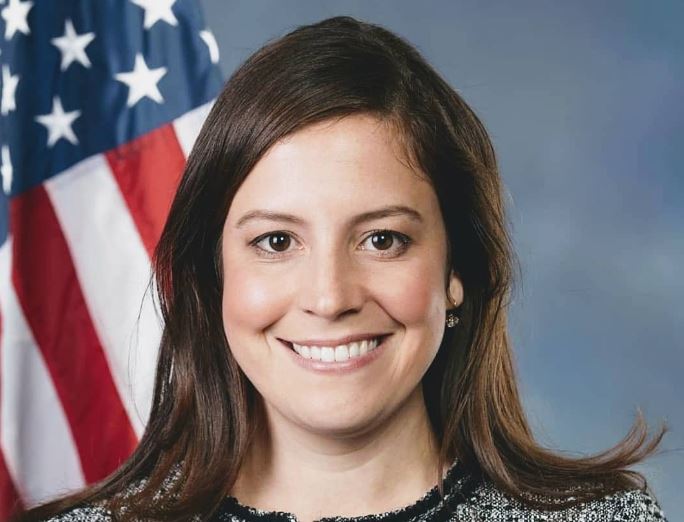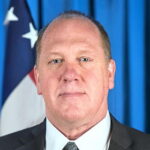Trump named Elise Stefanik, a New York congresswoman and close ally to former President Donald Trump, to the post of U.S. ambassador to the United Nations. That puts one of the former president’s most outspoken allies on the world stage and sends a clear message about what the future of U.S. policy in global organizations alone the U.N. might look like.
Her service in Congress has been marked by steadfast support for Trump and strident opposition to certain U.N. policies, particularly any involving Israel. An outspoken critic of the United Nations, her appointment represents Trump’s commitment to challenging what he and his base perceived as global organizations not in step with the “America First” agenda.
Stefanik’s Background and Political Rise
Stefanik’s political career has been dynamic, changing with the times. First elected in 2014 to Congress, she became instantly one of the most ambitious and calculating members of the House Republican Caucus. A graduate of Harvard, she also projected an image of being a moderate in her early years, pressed for bipartisan legislation, and urged for increasing representation of Republican females in Congress. As her district’s politics shifted right over time, however, Stefanik started to emerge as a vocal Trump supporter and a Republican Party mainstay.
Stafanik was nationally noticed during the first impeachment trial of Trump in 2019 due to her fierce defenses of him. Stefanik, however, became even more prominent after January 6th, 2021; she took the side of Trump’s fraud claims over the presidential election and nailed her loyalty to Trump supporters, launching her into a powerful leadership position in the House.
Criticism from the United Nations
Stefanik has been extremely vocal in her criticism of the United Nations, in particular about its stance on Israel. She has gone so far as to label the U.N. anti-Semitic based on its criticism of Israel’s policy in Gaza and the West Bank. Her appointment is a clear indication of Trump’s desire to push back against the UN’s actions that his base feels unfairly target Israel.
Stefanik has called for a “comprehensive reevaluation” of U.S. funding for the United Nations due to what she called its anti-Israel bias. Stefanik voted to support the request to “reduce U.S. funding for United Nations agencies” particularly for the United Nations Relief and Works Agency for Palestine Refugees in the Near East (UNRWA). She said her position “reflects an increasingly held view in outgoing congresswoman’s party that American contributions should be put into review, especially if they did not align with vital U.S. policies or values.”
Senate Reception and Anticipated Obstacles
That proximity to Trump, however, puts her in good graces with the Republican-controlled Senate, where her confirmation is likely to see little opposition. With her reputation for having strong connections with influential members of both houses in Congress, Stefanik’s supporters cite her experience with a wide range of domestic and international issues as preparation for the post of U.S. ambassador to the United Nations.
However, Stefanik might also find herself fighting an uphill battle due to her support for specific international issues, such as the decrease in U.S. contributions to the U.N., and her support of policies inimical to Palestinian causes. This could make the confirmation process stormy, although her supporters believe that her loyalty to Trump and adherence to the Republican goals will see her through.
The Future of Stefanik in American Politics
Stefanik’s nomination comes at a time when there has been much speculation about her long-term ambitions. With her prolific fundraising and relatively high national profile, she is often described as a potential candidate for higher office. The position of U.N. ambassador has paved the way for other high-profile American politicians, including Madeleine Albright, who later became Secretary of State, and George H.W. Bush, who went on to be president.
With this position, Stefanik will add more foreign policy credentials and increase her clout inside the Republican Party. It also serves to lock in her standing with Trump’s political circle and sets her up for any future appointments that raise her status on the national stage.
The nomination of Elise Stefanik to be the U.N. Ambassador means that Trump is making a conscious decision to place an outspoken promoter of his foreign policy opinion at the center of engagement between the United States and the global community.
A vocal protector of Israel and harsh critic of the United Nations, Stefanik’s presence as U.S. ambassador will continue shaping America’s approach to international relations, especially in those areas concerning Israel and U.S. funding policies in international bodies. As her confirmation continues to move forward, the world will be paying close attention to how her leadership will shape the direction of U.S. engagement at the United Nations.




